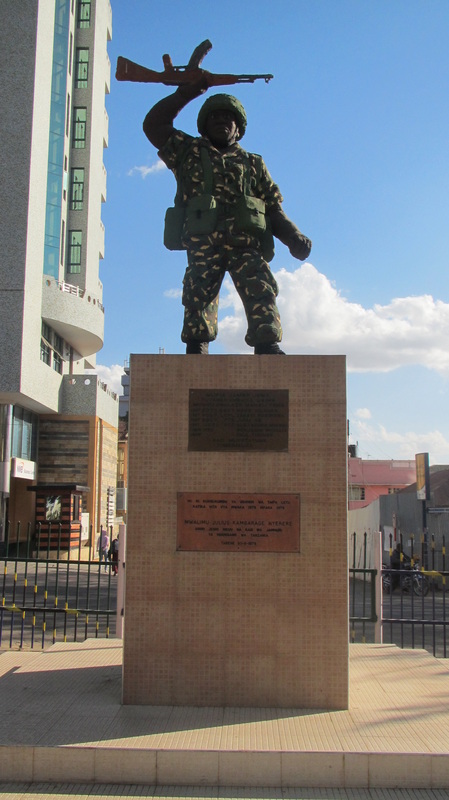Canadians should take this opportunity to rethink its entire approach to Africa. Today, Bill C-300, the private member's bill to monitor Canadian extractive industries abroad, will have its third reading and vote. The bill tries to fill gaps left when the current goverment released its response to the CSR Roundtables report. It is a bad bill with good intentions. With a leadership deficit in the PMO and PCO that really doesn't understand that Africa is more intrinsically important to Canada than ever before, we continue to flail around wasting the reputation built across the continent since the 1950s. This is not to say that reputation itself is important. Rather, it is to say that the hard power traditionalists have ignored the tremendous resource of soft (persuasive) and sticky (attractive) power that Canada once wielded to generally beneficial effect to world order.
Back to Bill C-300: if passed and ultimately signed into law (which for a number of reasons is highly unlikely), the bill would likely harm both Canada and Africa contrary to its supporters intentions. Mining firms will move their listings abroad (Barrick already hived off its Tanzanian holdings into African Barrick gold listed on the LSE). Canada wil suffer directly and indirectly from this movement. African host communities and countries will have to deal with firms from other countries whose governments wield bigger sticks abroad. Bigger firms will take the lead, which also can bring more pressure to bear on local governments. Canadian mining firms in general, and there are always bad apples in every group, already have better employment, HSE, and CSR policies in place than almost all of their international competitors. Ask a Zambian mine worker if they prefer to work for a Canadian or a Chinese copper mine?
Rather than Bill C-300, Canada needs to do three things: 1) Recognize that we are a major player in Africa (over $25 billion in extractive FDI and growing) and leverage that fact rather than ignore it; 2) Increase the official Canadian presence across the continent rather than cutting embassies and trade staff so as to garner a better, on-the-ground understanding of the challenges of doing extractive development in the best possible manner; 3) Create a new CSR fund, likely managed by DFAIT but with lines into CIDA technical expertise, that Canadian listed extractive firms can access as part of their development of CSR policies AND THEIR IMPLEMENTATION. Resources and expertise from the Canadian public sector would help influence though not direct the CSR programming of Canadian listed firms, help coordinate those programs with local and national development plans, and provide some guidance to firms who are following local law and regulations, as well as international voluntary codes, but who might need some extra help to navigate the complicated pathways to success, the win-win-win, for the company, the community, and the host government. Much of the ground work is already established in the office of the CSR Counsellor as well as the centres of CSR excellence that are being funded. But partnership requires an investment of public resources, if only a minority stake, in the CSR initiatives of extractive firms. Rather than telling Canadian firms what they should be doing, show them, support them, guide them. There are risks, but an integrated, partnered CSR policy is going to offer more protection and more chances of success to companies, communities, and host governments.
That all said, there is some connection between the rise of Canadian extractives abroad and the failure at the UN. Canada loses when a mining or energy project goes bad; Canada does not gain much diplomatically if projects go smoothly. There will be fewer bad projects if CSR thinking is well developed, is integrated with local development plans, and the Canadian Government is seen as a partner rather than as a bystander. We may have increased (doubled, depending on your base year calculation) our overall ODA to Africa since 2002, but most of that goes through multilateral or untied bilateral channels that increasingly restricts even partial recognition of its source. Extractive projects are public, they are messy, and the reputational hit can be huge if they go off the rails. As per nearly all other OECD and BRIC countries, Canada must take a more active role in the support of its firms abroad, and CSR is one important economic and development route not yet pursued.


 RSS Feed
RSS Feed
